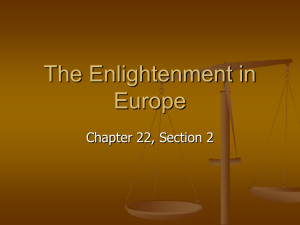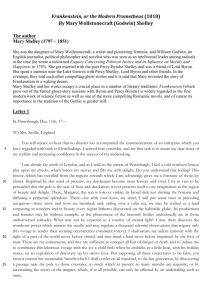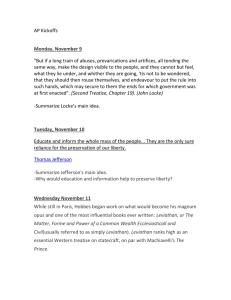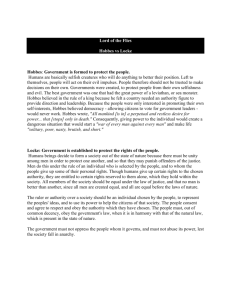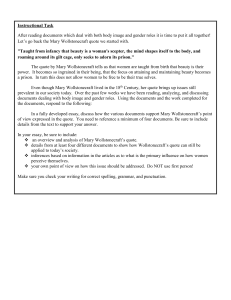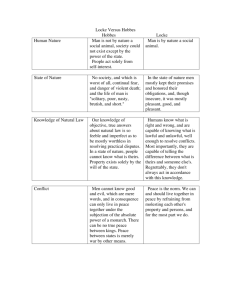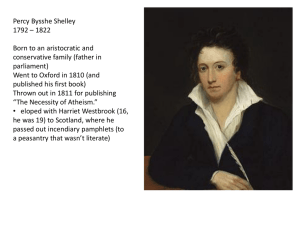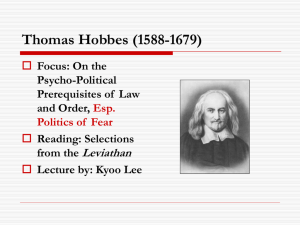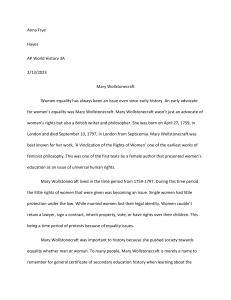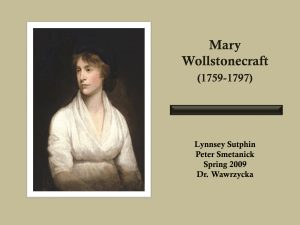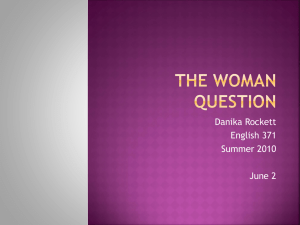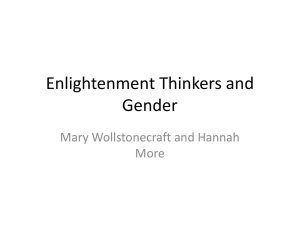Leviathan
advertisement
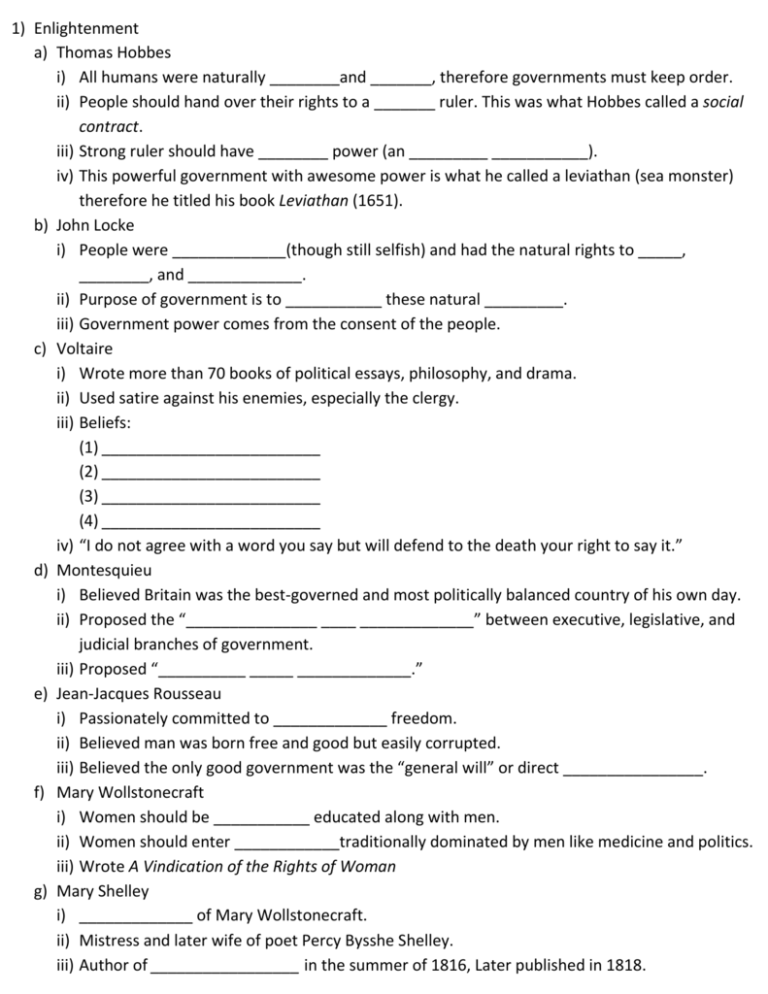
1) Enlightenment a) Thomas Hobbes i) All humans were naturally ________and _______, therefore governments must keep order. ii) People should hand over their rights to a _______ ruler. This was what Hobbes called a social contract. iii) Strong ruler should have ________ power (an _________ ___________). iv) This powerful government with awesome power is what he called a leviathan (sea monster) therefore he titled his book Leviathan (1651). b) John Locke i) People were _____________(though still selfish) and had the natural rights to _____, ________, and _____________. ii) Purpose of government is to ___________ these natural _________. iii) Government power comes from the consent of the people. c) Voltaire i) Wrote more than 70 books of political essays, philosophy, and drama. ii) Used satire against his enemies, especially the clergy. iii) Beliefs: (1) _________________________ (2) _________________________ (3) _________________________ (4) _________________________ iv) “I do not agree with a word you say but will defend to the death your right to say it.” d) Montesquieu i) Believed Britain was the best-governed and most politically balanced country of his own day. ii) Proposed the “_______________ ____ _____________” between executive, legislative, and judicial branches of government. iii) Proposed “__________ _____ _____________.” e) Jean-Jacques Rousseau i) Passionately committed to _____________ freedom. ii) Believed man was born free and good but easily corrupted. iii) Believed the only good government was the “general will” or direct ________________. f) Mary Wollstonecraft i) Women should be ___________ educated along with men. ii) Women should enter ____________traditionally dominated by men like medicine and politics. iii) Wrote A Vindication of the Rights of Woman g) Mary Shelley i) _____________ of Mary Wollstonecraft. ii) Mistress and later wife of poet Percy Bysshe Shelley. iii) Author of _________________ in the summer of 1816, Later published in 1818. 1) Enlightenment a) Thomas Hobbes i) All humans were naturally ________and _______, therefore governments must keep order. ii) People should hand over their rights to a _______ ruler. This was what Hobbes called a social contract. iii) Strong ruler should have ________ power (an _________ ___________). iv) This powerful government with awesome power is what he called a leviathan (sea monster) therefore he titled his book Leviathan (1651). b) John Locke i) People were _____________(though still selfish) and had the natural rights to _____, ________, and _____________. ii) Purpose of government is to ___________ these natural _________. iii) Government power comes from the consent of the people. c) Voltaire i) Wrote more than 70 books of political essays, philosophy, and drama. ii) Used satire against his enemies, especially the clergy. iii) Beliefs: (1) _________________________ (2) _________________________ (3) _________________________ (4) _________________________ iv) “I do not agree with a word you say but will defend to the death your right to say it.” d) Montesquieu i) Believed Britain was the best-governed and most politically balanced country of his own day. ii) Proposed the “_______________ ____ _____________” between executive, legislative, and judicial branches of government. iii) Proposed “__________ _____ _____________.” e) Jean-Jacques Rousseau i) Passionately committed to _____________ freedom. ii) Believed man was born free and good but easily corrupted. iii) Believed the only good government was the “general will” or direct ________________. f) Mary Wollstonecraft i) Women should be ___________ educated along with men. ii) Women should enter ____________traditionally dominated by men like medicine and politics. iii) Wrote A Vindication of the Rights of Woman g) Mary Shelley i) _____________ of Mary Wollstonecraft. ii) Mistress and later wife of poet Percy Bysshe Shelley. iii) Author of _________________ in the summer of 1816, Later published in 1818.
